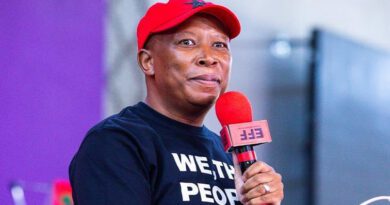New twist in battle over Please Call Me revenue generation model
Vodacom has launched a defence of its decision to not offer Please Call Me inventor Nkosana Makate compensation that runs into billions of rands, saying that there was “no direct attributable revenue” generated by the innovation when it was launched by the telecommunications giant in March 2001.
Vodacom’s chief financial officer, Till Streichert, said on Friday that Please Call Me – which enables a user without airtime to send a text to be called back – was not a money spinner for the group as the service was free for a limited promotional period.
According to Streichert, Vodacom eventually shelved its plan to charge for the service when it enjoyed take-up in the market and its competitor MTN decided on launching a similar product.
“We saw it [Please Call Me] substitute normal text messaging, therefore, there was a cap of five messages per day and per user. This tells you that if it had been a substantially profitable service, one would not have considered putting a cap on it,” he said.
“Therefore, there is no direct attributable revenue as part of Please Call Me as it has never been charged for.”
Asked if there was any incremental revenue generated by customers that had decided to initiate voice calls upon receiving a Please Call Me message, Streichert said the question is “highly speculative.”
“We have been seeing traffic [on calls] evolving over many years. Normal calling patterns have been incremental.”
It is on this basis that Vodacom maintains that Makate’s claims for billions of rands for the Please Call Me service is “highly irrational and with no substance.”
Makate’s legal team estimated that the Please Call Me invention generated R70 billion in revenues for Vodacom based on adverting built into the service, returned calls and digital sales.
Makate said he is entitled to a 15% share of the revenues as compensation (estimated to be up to R10.5 billion) as the percentage was his agreement with Vodacom when he invented Please Call Me.
Talks between Vodacom and Makate have stalled since the Constitutional Court ordered on April 26, 2016, that both parties enter into in good faith negotiations to determine reasonable compensation for the Please Call Me invention.
Makate’s disagreement with Vodacom over compensation for the Please Call Me invention adds another twist to what is shaping up to be a protracted battle between both parties.
The matter came to a head in January 2019 when Vodacom said it considers the matter as finally settled and closed after its group CEO Shameel Joosub met with Makate’s legal representatives to convey his determination on compensation. Joosub’s involvement was part of the court’s order that enabled him to arbitrate negotiations should a deadlock on compensation materialise.
Makate responds
On Friday, Makate rejected Streichert’s claims, telling Moneyweb that he contradicted the majority judgment delivered by Justice Chris Jafta at the apex court.
In his 2016 judgment, Jafta said that Please Call Me “was an instant hit with customers and raked in a lot of money for Vodacom”.
“It is common cause that this product has generated revenue amounting to billions of rands… As stated, the product was and continues to be a huge success, generating billions of rands for Vodacom,” Jafta’s judgment reads.
Makate reiterated his earlier statement, telling Moneyweb that Vodacom’s offer for compensation was “shocking and an insult.”
It is understood by Moneyweb that Makate will approach the courts again to have Joosub’s compensation offer reviewed after the collapse of his compensation talks with Vodacom. This might potentially see him revive a new legal battle with Vodacom at a high court level.
Vodacom’s chief of legal and regulatory affairs Nkateko Nyoka said the company has sweetened its initial compensation offer to Makate.
“The compensation offer is significantly higher than the R10 million [initially offered by Vodacom to Makate in April 2018] and it was an extremely generous offer,” said Nyoka.
Both parties did not disclose the exact amount citing confidentiality agreements.
Source: moneyweb.co.za



